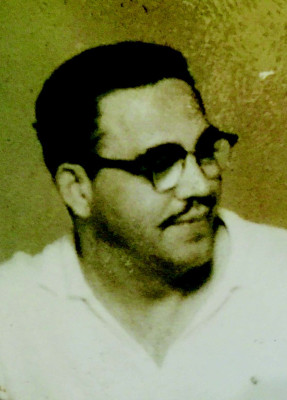
James Herbert Finley, Sr. owned and operated the first chain of African American drug stores in the state of Alabama. He was also a dedicated civil rights advocate during the sixties and seventies, serving as Vice-President of the Neighborhood Organized Workers (NOW), a grass roots organization that utilized Dr. Martin Luther King’s nonviolent strategies of boycotting, picketing, and marching. Finley and NOW leadership were plaintiffs in the landmark lawsuit that led to the dismantling of at-large local elections in the City of Mobile. At-large elections were used to ensure no person of color would be elected to public office. The court’s ruling forced elected officials to run from the district where they reside.
After graduating from Xavier University School of Pharmacy, Finley returned home in 1956 to work with his brother, John, at Finley’s Pharmacy, which opened in 1950. The brothers decided to go into partnership and open a drug store at the corner of Marmotte Street and Davis Avenue. They later dissolved the partnership and their brother-in-law, Ben Jackson, bought out and assumed that drug store.
Finley’s Drug Stores, Incorporated was formed on July 1, 1966, and filed with the Alabama Secretary of State. The first store in the chain of Finley’s drugstores was opened at the ground level of the Franklin Building on the corner of Davis Avenue and Cleveland Street in Mobile, Alabama. Finley later opened an additional four drug stores in Mobile at Happy Hill, Davis Avenue and Hospital Street, Costarides Street, and Stanton Road and King Street.
Like many Civil Rights activists in the 1960s and 1970s, Finley was arrested on a series of conspiracy charges in August 1973. For the first time in Mobile’s history, a Federal Judge ordered night sessions during Finley’s trial. The jury for Finley was all white. After nine days and nights of trial, the jury deliberated for only 40 minutes to find Finley guilty of one charge of income tax evasion. Finley spent 13 months in a federal penitentiary. Four months after his release, he died of a massive heart attack in his drug store on Costarides Street. Economic parity for African Americans in Mobile, Alabama came at a dear price.
On July 7, 2007, the City of Mobile honored James H. Finley, Sr. for his civic contributions by naming a street after him.
Resources
-
Karlos F. Finley, Board Member, Friends of the African-American Heritage Trail http://www.maaht.org/tour2/index.html?id=b&point=8

